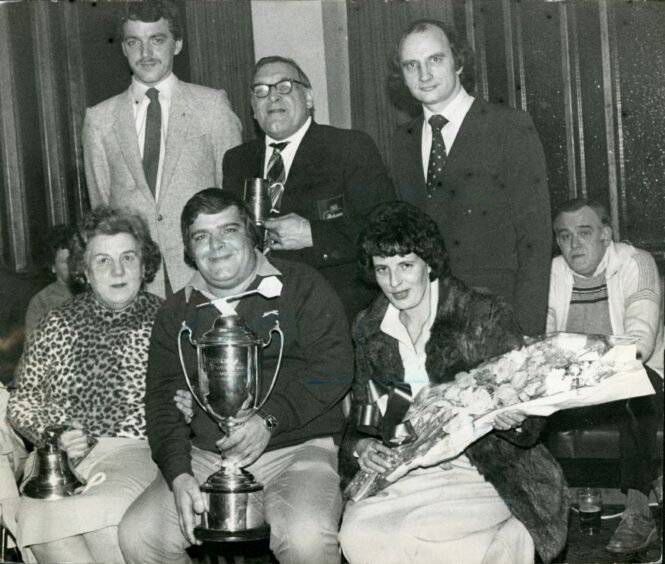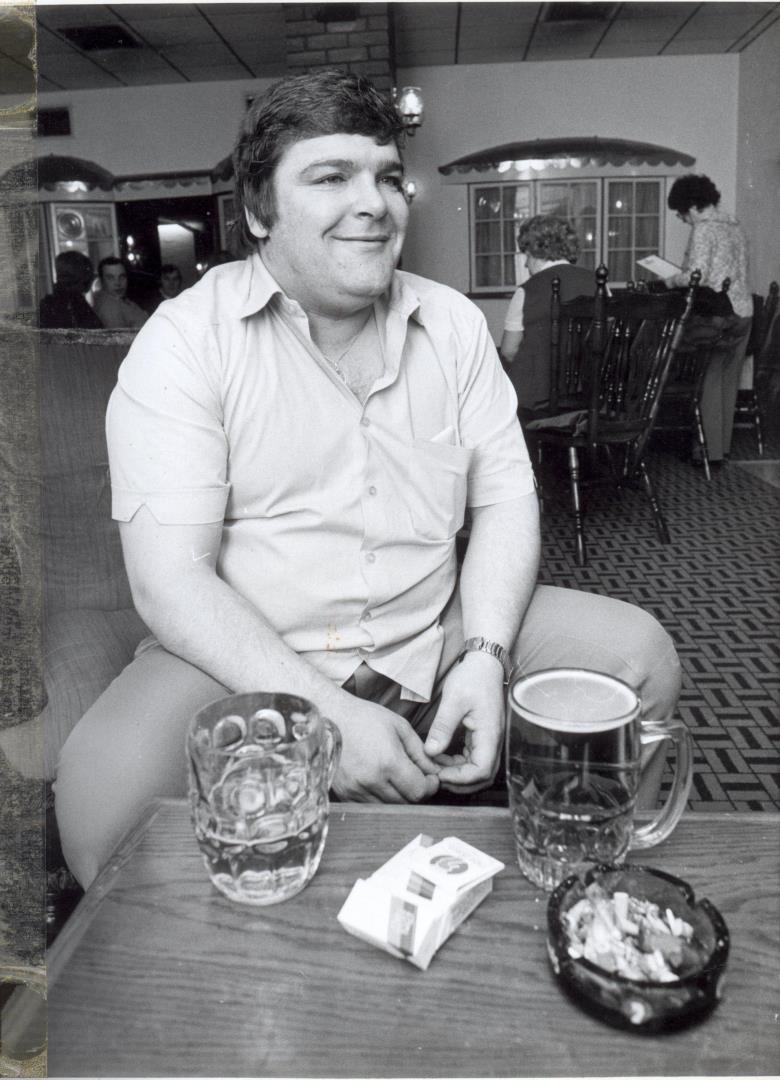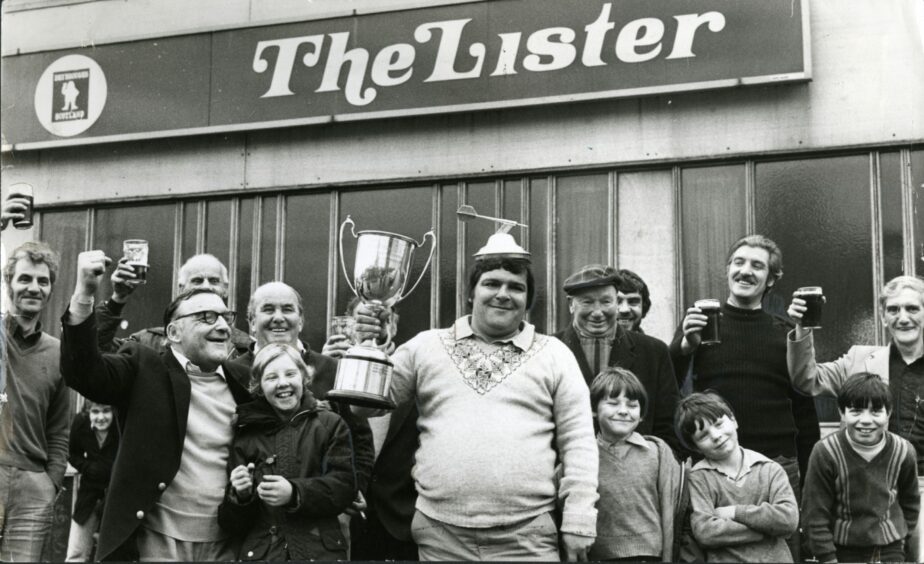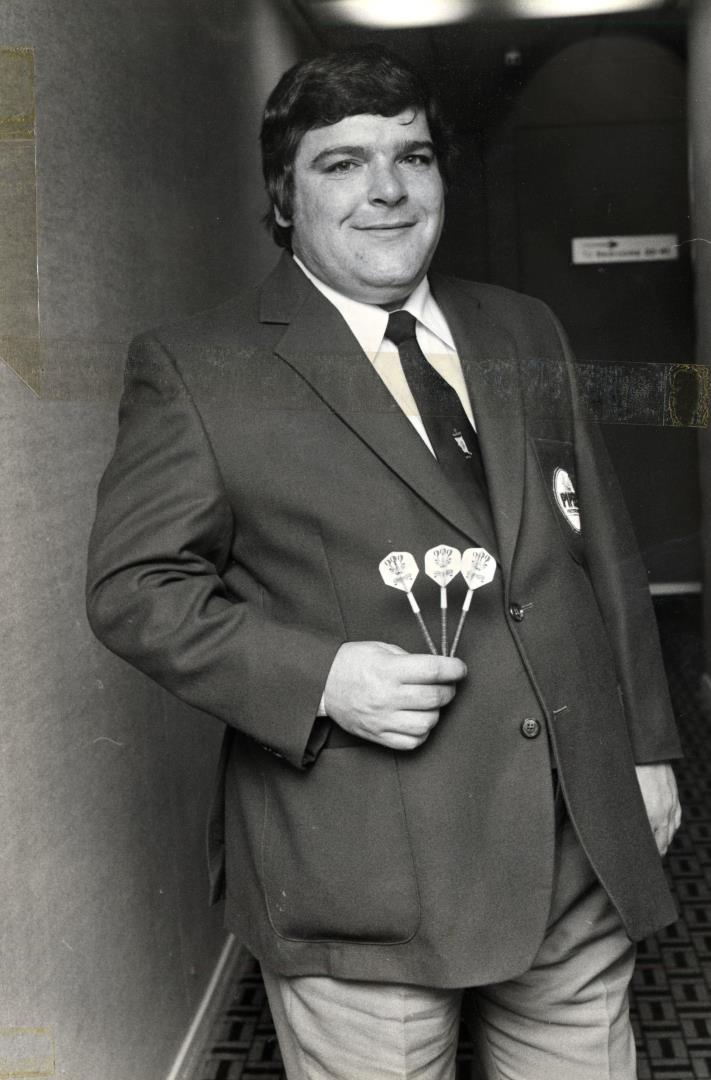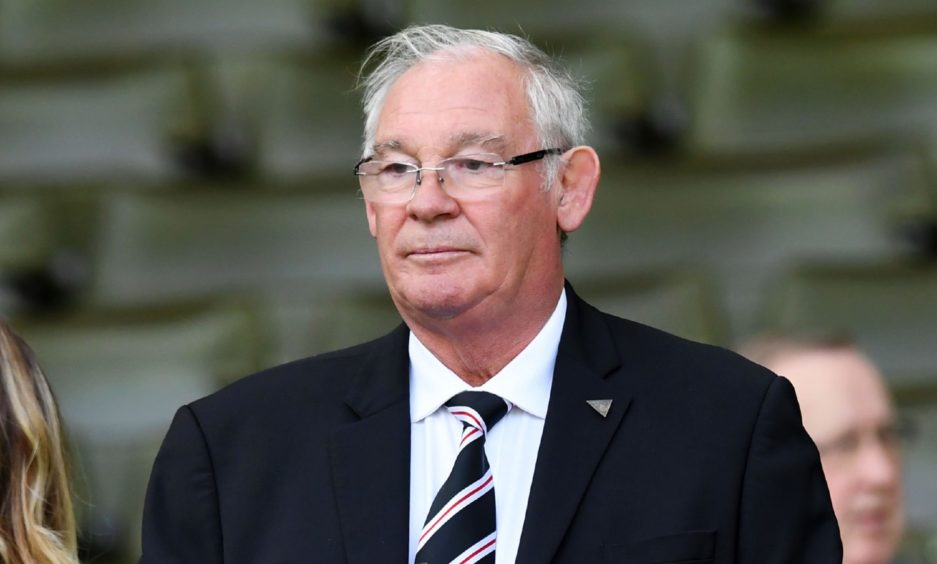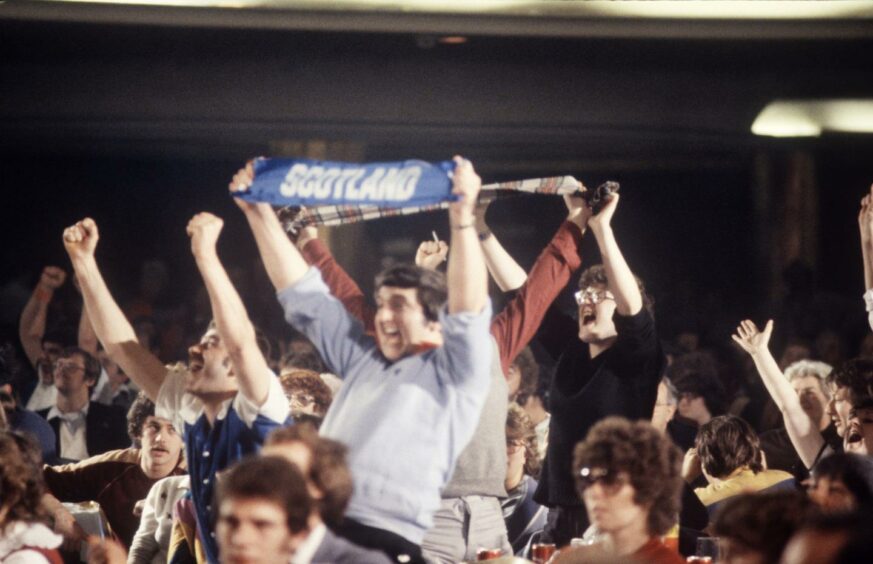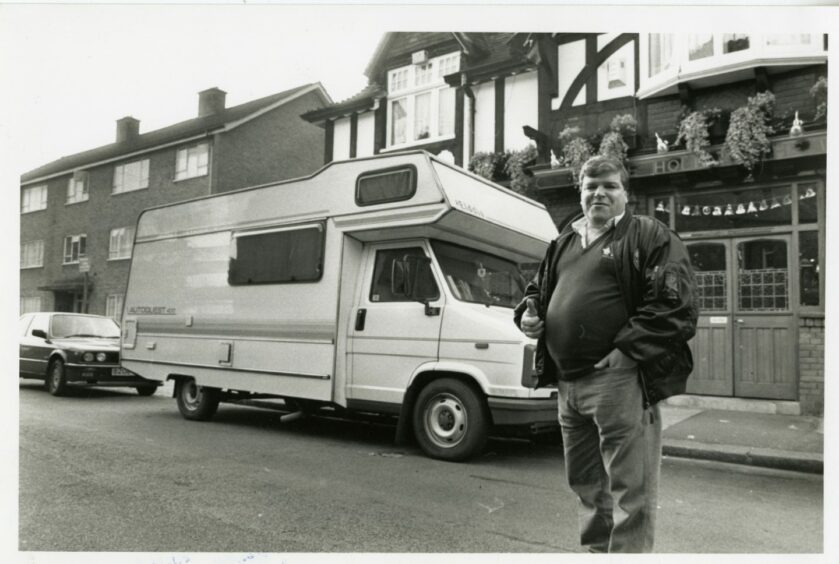Jocky Wilson became a household name when he threw a double 10 to win the world darts title in January 1982.
The toothless smile only disappeared from his face when manager Ron Clover took him to one side just an hour after collecting the £6,500 prize.
Clover told him that burst pipes had caused the ceiling of his council house in Kirkcaldy to collapse and his wife Malvina and three children had been evacuated.
The problem had been kept secret from Jocky all week.
Malvina did not want him distracted and went back to sit by the phone in the freezing-cold house every night until he had rung her as normal.
Darts in the 1980s was a world populated by hard-drinking, cigarette-smoking, middle-aged men with double chins and receding hairlines.
Jocky still managed to stand out with his stout but diminutive build, crooked grin and ability to out-drink all-comers during his heyday at the oche.
Born in March 1950 at Craigtoun Hospital, St Andrews, Jocky came from a large family and survived some difficult times, including several years in care.
Jocky served in the British Army from 1966 to 1968 and also worked as a coal delivery man, fish processor and a miner at Kirkcaldy’s Seafield Colliery.
Jocky was a quiet man who could also be terrific company and a great laugh.”
Jim Leishman
He began playing darts in the 1970s at the Lister Bar in Kirkcaldy, where the landlady supported him by giving him a used board to practise on.
In 1979 he entered a competition at Butlins in Ayrshire and won the top prize of £500.
His success convinced him that he should turn professional and by the end of that year he was in the top eight in the world.
On New Year’s Day in 1982, a fortnight before that first world title, he won the inaugural British Professional Darts Championship, winning £6,000 in prize money.
A pint of lager washed down by an endless supply of vodka was his preparation for major darts events.
Dieticians and fitness instructors still shake their heads in disbelief at this madcap routine but it had the desired effect on the biggest stage of all.
The 1982 World Darts Championship was staged at smoke-filled Jollees Cabaret Club in Stoke-on-Trent and reigning champion Eric Bristow was knocked out in the first round.
Jocky only dropped one set in wins over Rab Smith, Alan Evans, Dave Miller and Stefan Lord to reach the final against 1979 champion John Lowe.
“The lad has the psychology of a claymore,” said commentator Sid Waddell.
Jocky won 5-3 and became the first Scotsman to lift the trophy during an era when the sport was attracting terrestrial TV audiences in excess of eight million.
“This must be the proudest moment of my life,” said Jocky.
That victory allowed Jocky to buy a house of his own and he spent £1,200 of his prize money on a set of dentures but he never took to them.
He complained that they made him belch when he was drinking and, once while celebrating a victory, they flew out of his mouth and on to the oche.
Jocky drove through the night to get back home from Stoke-on-Trent and brought the trophy back to the Lister Bar where his prowess had first became evident.
Jocky lit up his native Kirkcaldy and put a smile on the faces of the townsfolk at a time when a succession of governments ripped job after job out of the heart of Fife.
Darts probably enjoyed its peak in 1989, when there were 11 televised tournaments, and that was the year that Jocky secured his second world title, this time beating his greatest rival, Eric Bristow, 6-4 in a classic final.
He was three times a losing semi-finalist in addition to his two titles.
But that 1989 title was also to be the Fifer’s last taste of success in any major tournament.
Jocky was sometimes controversial, occasionally outspoken, but always extremely popular with darts fans who loved his honest approach and natural talent.
Fife Lord Provost Jim Leishman broke it down further.
“I fondly remember coming up against Jocky at the oche in a charity darts game after he had just collected one of his world titles,” he said.
“I was understandably worried about getting a humiliating hammering, despite starting off on a score of 101 with Jocky beginning on 301.
“I must have looked concerned because he suggested that he buy me a wee drink before the game in order to ease the nerves.
“That ‘wee drink’ turned out to be two large vodkas for me and two large vodkas for him.
“Now, Jocky had just been telling me how he had spent the last few days before the charity event at a health farm, enjoying some rest and relaxation.
“I joked to him that it didn’t seem to be much of a health regime that he was on.
“Jocky smiled and produced a plastic carrier bag and pulled out a big bottle of diet cola before pouring the contents into the tumblers.
“That was Jocky’s version of a health kick.
“Needless to say, the game went the way I expected.
“I didn’t even get down to a double and Jocky was a convincing winner despite me having a 200-point start on him.
“While that is a funny memory I have of him, Jocky was a serious sportsman who captivated a nation with his brilliant performances under tremendous pressure.
“Jocky was a quiet man who could also be terrific company and a great laugh.
“Above all, though, he was an entertainer.”
Jocky gave hope to thousands of pub players that they, like him, could hit the big time.
Even at the height of his fame he never forgot his roots – or those who wrote about him.
Former Evening Telegraph journalist Jim Masson spent many nights with Jocky while he was trudging the exhibition circuit in the 1970s and ’80s.
“I was one very humble young reporter one night in Dundee when, during an exhibition, he thanked me from the stage for writing about him,” said Jim.
“I remember another in Perth’s Tulloch Institute where, his eyes transfixed on a darts board a fair distance away, he remarked it wasn’t sitting in the correct place.
I’m disappointed to have lost but Jocky deserved to win. He’s a great player and a lovable wee rogue.”
John Lowe
“Unbeknown to me, a darts board has to be a certain distance from the floor and Jocky demanded a measuring tape be produced.
“He was right, the board level was half an inch short and that was very soon rectified.
“Just days after Jocky won the 1982 world title, his defeated final foe, John Lowe, one of the gentlemen of darts, gave an exhibition at Perth’s Ormond Bar.
“I asked John how he felt at losing to a wee, beer-drinking, 50-fags-a-day Fifer?
“He replied: “I’m disappointed to have lost but Jocky deserved to win. He’s a great player and a lovable wee rogue.”
“And that summed Jocky up.
“He was a world champion who never forgot he was also a punter.”
Jocky’s final appearance in a televised tournament came in the 1995 World Matchplay where he lost to Nigel Justice in the second round.
He never formally announced his retirement from darts.
He simply departed from the sport suddenly on December 23 1995.
After living in the north-east of England for the last 10 years of his darts career, he returned home to Kirkcaldy.
He was declared bankrupt in 1998 and then survived on a disability allowance.
He died on March 24 2012, at his home.
More like this:
Darts and the man: Sid Waddell was the Bill McLaren of the oche

